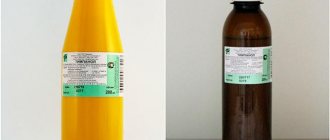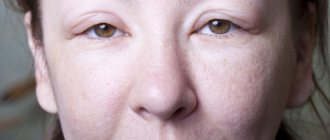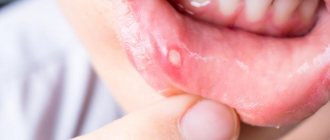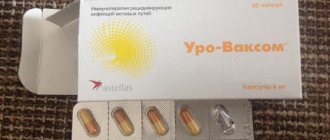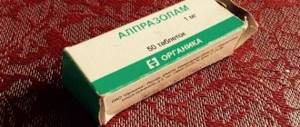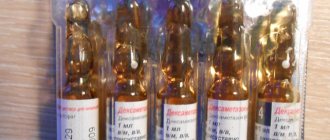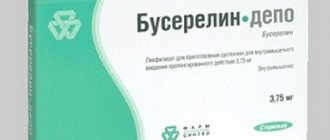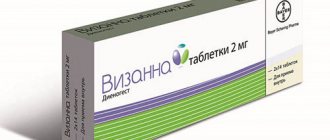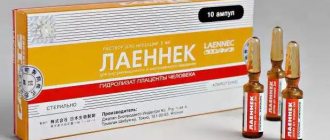The other day I was a little sick, apparently cold, and here is the result. The symptoms are, in principle, as usual: body aches, fever, fatigue, etc.
And so I decided to take some kind of magic drug that would help me recover faster and put me back on my feet, otherwise I really didn’t want to get sick.
Everyone around began to advise, as always, who is saved by Arbidol, who is saved by Oscillococcinum, and everyone seems to be helping. And advertising tells us how wonderfully these drugs fight viruses. I also decided to check what is really in these drugs that they help so wonderfully.
Medications
I did a little searching on the Internet, dug into Wikipedia and was, to put it mildly, simply shocked by what I found out.
Let's remember a couple of the most advertised and popular drugs, which are actively positioned as immunostimulating, and sometimes frankly as antiviral drugs.
- Arbidol
- Oscillococcinum
- Anaferon
Let's see what these drugs are and how they can help us. The wiki will save us, of course. Most of the drugs that are sold in pharmacies without a prescription are so-called homeopathic remedies. Many people have probably heard this term many times, which sounds so scientific. But what does it actually mean? Let's turn again to the same Wikipedia:
Homeopathy is a type of alternative medicine that involves the use of highly diluted drugs that are believed to cause symptoms in healthy people similar to those of the patient's illness. The scientific community regards homeopathy as a scam, citing the lack of scientific basis for this method of treating diseases. The theoretical basis of the homeopathic principle does not correspond to scientific ideas about the functioning of a healthy and sick body, and clinical trials of homeopathic medicines have not revealed any differences between homeopathic medicine and placebo
.
For those who have forgotten, let me remind you:
Placebo is a substance without obvious medicinal properties, used as a medicine, the therapeutic effect of which is associated with the patient’s belief in the effectiveness of the drug. Sometimes a placebo capsule or tablet is called a dummy. Lactose is often used as a placebo substance.
That is, it turns out that the drugs “sold” to us to “fight the influenza virus and ARVI” are nothing more than ordinary M&M’s, but with a medical name. Let's get a look.
Adverse reactions
When using the drug "Imudon", a person may experience certain negative consequences, for example:
- Stool disorders.
- Nausea.
- Pain in the stomach area.
- Vomiting.
- Loss of appetite.
- Exacerbations of chronic respiratory diseases.
- Bronchospasms (a pathological condition that occurs when the smooth muscles of the bronchi contract and their lumen decreases).
- Cough syndrome.
- Rashes on the skin.
- Hyperemia (a pathological condition that consists of a local increase in the amount of blood in a tissue or organ).
- Edema.
- Bronchial asthma (chronic inflammation of the respiratory system with the participation of various cellular elements).
- Itching.
- Burning.
- Urticaria (an allergic disease that is manifested by the formation of blisters on the surface of the skin and mucous membranes).
- Angioedema (an acute condition characterized by the rapid development of local swelling of the mucous membrane, subcutaneous tissue and the skin itself).
- Erythema nodosum (an inflammatory process in the skin and subcutaneous vessels, which is of allergic origin and is manifested by the formation of dense, painful hemispherical inflammatory nodes of various sizes).
- Thrombocytopenia (a condition characterized by a decrease in platelet count below 150·109/l, which is accompanied by increased bleeding and problems stopping bleeding).
- Vasculitis (a group of diseases based on immunopathological inflammation of blood vessels - arteries, arterioles, capillaries, venules and veins).
The drug can be combined with other medications; there are no contraindications in this regard in the instructions.
Arbidol
Open information from Wikipedia:
Arbidol is the name of the drug umifenovir. Other names of umifenovir are “Arpetolide”, “Arpeflu”, “ORVItol NP”, “Arpetol” and “Immusstat”.
Research
“Research on arbidol does not provide grounds to consider it as a drug with proven efficacy in treating colds, including influenza,” says Professor Vasily Vlasov, President of the Society of Evidence-Based Medicine Specialists. The World Health Organization has never considered umifenovir (or Arbidol) as a promising antiviral drug. The Food and Drug Administration has refused to register it in the United States.
At a meeting of the Presidium of the Formulary Committee of the Russian Academy of Medical Sciences on March 16, 2007, a resolution was adopted: “Immediately remove outdated drugs with unproven effectiveness - ..., arbidol, ...” from the list of medicines used for drug provision in the DLO program.
The most succinct characteristic of Arbidol’s research is the following paragraph:
“Clinical studies of the drug were carried out simultaneously at the All-Union Research Institute of Influenza and the Research Institute of Epidemiology and Microbiology named after. Pasteur in Leningrad, as well as at the Research Institute of Virology named after. Ivanovsky in Moscow. A comparative, double-blind, placebo-controlled study was conducted using data from clinical institutions. The results of these studies are unknown. However, clinical trials of the drug in accordance with modern requirements of evidence-based medicine have not been carried out, therefore arbidol should be classified as a drug with unproven effectiveness” link.
So it turns out that the best-selling “antiviral” device is nothing more than “a drug with unproven effectiveness.”
By the way, the State Duma rejected the law on conducting independent clinical trials of such drugs.
Let's move on.
Form and composition of the pharmaceutical product
The active components of Mudon are bacterial breakdown products (lysates). By “training” on them, the body strengthens the immune system. When the tablets are dissolved, the lysates stimulate the growth of the number of immune cells in the mucous membrane of the oropharynx. Also, under their influence, the amount of immunoglobulin A, interferon and lysozyme in saliva increases.
The medication is available in the form of white tablets (slight marbling of color is acceptable) that dissolve in the mouth. They have a cylindrical flat shape, a smooth glossy surface and a mint smell. One blister contains eight tablets, and one package contains 3 or 5 blisters.
The pharmaceutical product is stored in a place protected from the sun and out of reach of children, at a temperature of no more than 25 degrees. The shelf life of the medication is 2 years.
Research
The manufacturer does not report anything about the mechanism of action of the drug or its pharmacokinetics. There is no scientific evidence on how duck intestine extract should inhibit influenza viruses. Moreover, the drug does not actually contain this active substance.
“Theoretically, the entire Oscillococcinum sold until the end of time could be made from a single duck liver.”
Cool, isn't it? That is, sugar and fillers with “theoretical” duck liver extract. Let's move on.
That is, sugar and fillers with “theoretical” duck liver extract. Let's move on.
special instructions
Children of preschool age with tonsillitis and other diseases should dissolve tablets under the supervision of adults.
If the patient needs to rinse his mouth, this procedure can be performed no earlier than one hour after dissolving the tablet, so as not to reduce the therapeutic activity of the medicine.
It should be borne in mind that one Imudon tablet contains 15 mg of sodium if the patient adheres to a low-salt or salt-free diet .
While taking the medicine, you can drive vehicles and work with precise and dangerous machinery.
People with bronchial asthma may experience an exacerbation of the disease and the development of attacks when taking medications with bacterial lysates. Therefore, the use of such a remedy is not recommended.
Anaferon
Anaferon is a homeopathic remedy produced by NPF Materia Medica Holding (Moscow). Positioned. The manufacturer claims that the drug has antiviral activity by increasing the body's overall resistance, but its effectiveness is often questioned. Science does not know how antibodies to interferon can help in the prevention or treatment of influenza and ARVI.
Until 2012, it was included in the List of vital and essential drugs, but was excluded from the List for 2012 at the request of the manufacturer.
Here is the true description of the composition of the drug:
“...a simple calculation shows that one molecule of this active substance is contained in one hundred million tablets. Probably, Materia Medica produces about the same amount and the same amount is bought in pharmacies by people who care about their health and the health of their children.” link
Here are a few more not so popular names of homeopathic remedies:
- Girel (homeopathic tablets)
- Immunal (drops and tablets)
- Derinat
- Aflubin
- Influcid
- Coldenflu
- Imudon
- Irs 19
All information is taken from open sources on the Internet. And here, by the way, is another interesting article in Esquire magazine, but as always, with political overtones.
Interesting information, isn't it? And it only took half an hour of time and a little perseverance, and I learned so many new things. It’s easier, in general, not to treat people, but to give them a placebo, and it will go away on its own.
By the way, this is the lesser of two evils, since some antiviral drugs that actually have an effect on influenza viruses, unfortunately, have a number of side effects. Therefore, as a rule, they are not very often recommended by doctors. Then you will also have to treat for side effects.
Well, so as not to be unfounded, I will give a couple of examples.
On the website of one of the pharmacies, I found a list of antiviral drugs to fight the flu. Here are a couple of names that are constantly heard:
- Tamiflu
- Amiksin
A simple search produces interesting results.
Therapeutic actions
According to the instructions for Imudon, lozenges for the throat are considered immunomodulatory, which contain various bacteria, which most often cause inflammatory processes in the human body. The medicine is widely used for preventive purposes and in the treatment of dental and otorhinolaryngological diseases.
Under the influence of this medication, the process by which cells capture and digest solid particles is stimulated, and the production of lysozyme in saliva and interferon increases.
Tamiflu
Oseltamivir (oseltamivir) is a drug used to treat influenza. Oseltamivir is an antiviral agent, belongs to the group of neuraminidase inhibitors, blocks the replication of influenza viruses type A and B.
The device is effective, but in the annotation for the drug, the only side effects listed are nausea and vomiting
In fact, research shows that the drug has many more side effects, which for some reason they don’t want to warn us about.
- Nausea, vomiting, insomnia, dizziness, diarrhea, lethargy, headaches, sore throat, cough, abdominal pain.
- Data from post-marketing studies of the drug in 2006 (mainly obtained in Japan) indicate a high risk, especially in children, of the development of disorders of consciousness (psychotic reactions, delirium). In this regard, the US Food and Drug Administration (FDA) and the drug manufacturer informed healthcare workers about changes to the drug label.
After the first item on the list of side effects, you can’t help but think, is the flu really that bad compared to the consequences of taking this drug?
Contraindications
Prevention and treatment of the following diseases of infectious and inflammatory origin of the pharynx and oral cavity:
- Chronic tonsillitis;
- Pharyngitis;
- Periodontitis, deep and superficial periodontal disease, glossitis, stomatitis, including aphthous;
- Dysbacteriosis of the oral cavity;
- Ulcerative and erythematous gingivitis;
- Preparation for tonsillectomy and postoperative period;
- Infections after tooth extraction surgery, implantation of artificial dental roots;
- Disorders of the oral mucosa caused by wearing dentures.
- Pregnancy and breastfeeding period;
- Age up to 3 years;
- Autoimmune diseases;
- Hypersensitivity to the components of the drug.
Amiksin
Tiloron is a synthetic low-molecular compound that has antiviral properties and the ability to induce interferon when administered orally. There are also reports of its antitumor and anti-inflammatory properties. In dosage forms it is used in the form of dihydrochloride.
The company, the manufacturer of the drug Amiksin, actively uses the media to promote it on the Ukrainian and Russian markets. However, data published by the media does not always correspond to scientific research data. For example, the statement that “A feature of AMIXIN is the almost complete absence of serious adverse reactions” contradicts the information obtained during the study of the drug.
I would especially like to note:
In a small study that included 14 patients who were prescribed tilorone, in two of them (the doses received were 152 and 189 g - corresponding to 1216 and 1512 Amixin IC tablets, respectively, with a recommended dose of 80 - 100 tablets per year), the drug caused retinopathy and keratopathy. Although visual acuity did not decrease, and the effects were gradually reversible after discontinuation of therapy, the study authors point out the potential health hazards of the drug.
Imudon: instructions for use
Adolescents over 14 years of age and adults with acute inflammation of the oral cavity and pharynx, as well as with exacerbations of diseases of a chronic nature, should take Imudon at a dose of 8 tablets per day. The tablets do not need to be chewed, they must be dissolved in the mouth, with a one-hour break. The required course of treatment is 10 days.
To prevent chronic inflammatory diseases of the pharynx and oral cavity, the drug intake is limited to 6 tablets per day. The course of admission is 20 days. The tablets must be dissolved at intervals of 2 hours (do not chew). Carrying out these preventive measures is recommended 3-4 times a year.
For children from 3 to 14 years old, as a preventive measure, as well as for the treatment of inflammatory diseases (acute and chronic forms) of the oral cavity and pharynx, Imudon should be taken 6 tablets per day. The tablets need to be dissolved every 2 hours. The general course of treatment is 10 days, and for preventive measures for diseases of a chronic nature - 20 days. Preventive measures aimed at preventing diseases are carried out 3-4 times a year.

